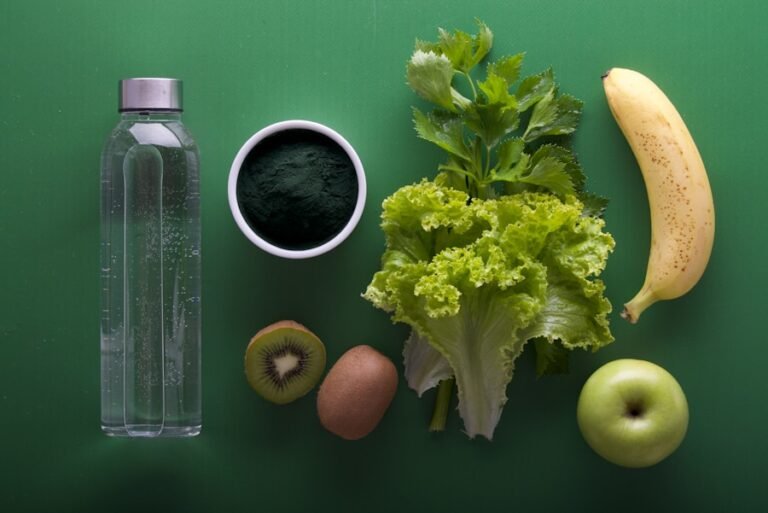DIY Dental Care: Effective Home Remedies for Toothache You Need to Try Now!
Toothache is a common dental problem that can cause significant discomfort and pain. It refers to any pain or discomfort in or around the teeth and jaws. Toothache can range from mild to severe and can be caused by various factors.
The most common causes of toothache include tooth decay, gum disease, tooth abscess, cracked tooth, impacted wisdom tooth, sinus infection, and temporomandibular joint (TMJ) disorders. These conditions can lead to inflammation, infection, or damage to the tooth or surrounding tissues, resulting in pain and discomfort.
Understanding the causes of toothache is essential in finding the right treatment and relief. By identifying the underlying cause, individuals can take appropriate measures to address the issue and alleviate the pain.
The Benefits of DIY Dental Care: Saving Money and Time
DIY dental care refers to taking care of your oral health at home without professional intervention. While it is always recommended to visit a dentist regularly for check-ups and professional cleanings, there are several advantages to practicing DIY dental care.
One of the primary benefits of DIY dental care is cost savings. Dental treatments can be expensive, especially for those without insurance coverage. By taking care of your oral health at home, you can reduce the need for costly dental procedures and save money in the long run.
Additionally, DIY dental care allows for greater convenience and time savings. Visiting a dentist often requires scheduling appointments and taking time off work or other commitments. By practicing good oral hygiene habits at home, you can save time by avoiding unnecessary trips to the dentist.
Essential Tools and Materials for DIY Dental Care
To effectively practice DIY dental care, it is important to have the right tools and materials on hand. Some basic dental tools include a toothbrush, dental floss, tongue scraper, interdental brushes, and a mouthwash.
When it comes to dental materials, toothpaste, dental floss, and mouthwash are essential. It is important to choose products that are approved by dental associations and contain fluoride for optimal oral health.
These tools and materials can be easily purchased at local pharmacies, supermarkets, or online retailers. It is important to choose reputable brands and products that are recommended by dental professionals.
Natural Remedies for Toothache: Clove Oil, Saltwater Rinse, and Garlic
Natural remedies can provide temporary relief for toothache and help alleviate pain and discomfort. Some commonly used natural remedies for toothache include clove oil, saltwater rinse, and garlic.
Clove oil has been used for centuries as a natural remedy for toothache. It contains eugenol, a compound that has analgesic and antibacterial properties. To use clove oil for toothache relief, apply a small amount to a cotton ball and place it on the affected tooth or gums.
Saltwater rinse is another effective natural remedy for toothache. It helps reduce inflammation and kill bacteria in the mouth. To make a saltwater rinse, dissolve half a teaspoon of salt in eight ounces of warm water. Swish the solution around your mouth for 30 seconds before spitting it out.
Garlic is known for its antimicrobial properties and can help relieve toothache caused by infection. Crush a garlic clove to release its juices and apply it directly to the affected tooth or gums. Leave it on for a few minutes before rinsing your mouth with water.
Herbs and Spices for Toothache: Peppermint, Thyme, and Turmeric
Herbs and spices can also be used to alleviate toothache and provide temporary relief. Peppermint, thyme, and turmeric are commonly used herbs and spices for toothache relief.
Peppermint has analgesic properties that can help numb the area and reduce pain. You can apply peppermint oil directly to the affected tooth or gums or make a peppermint tea by steeping fresh peppermint leaves in hot water.
Thyme has antibacterial properties that can help fight infection and reduce inflammation. To use thyme for toothache relief, steep fresh thyme leaves in hot water to make a tea. Swish the tea around your mouth for a few minutes before spitting it out.
Turmeric has anti-inflammatory properties that can help reduce swelling and pain. Mix turmeric powder with water to form a paste and apply it directly to the affected tooth or gums. Leave it on for a few minutes before rinsing your mouth with water.
Fruits and Vegetables for Toothache: Onion, Ginger, and Cucumber
Certain fruits and vegetables can also provide relief for toothache. Onion, ginger, and cucumber are commonly used for their natural properties that can help alleviate pain and discomfort.
Onion has antimicrobial properties that can help fight infection and reduce pain. Cut a small piece of onion and place it directly on the affected tooth or gums. Leave it on for a few minutes before rinsing your mouth with water.
Ginger has anti-inflammatory properties that can help reduce swelling and pain. Cut a small piece of fresh ginger root and chew on it gently to release its juices. Alternatively, you can make a ginger tea by steeping fresh ginger slices in hot water.
Cucumber has a cooling effect that can help numb the area and reduce pain. Cut a slice of cucumber and place it directly on the affected tooth or gums. Leave it on for a few minutes before rinsing your mouth with water.
Oils and Extracts for Toothache: Tea Tree Oil, Vanilla Extract, and Myrrh
Certain oils and extracts can be used to alleviate toothache and provide temporary relief. Tea tree oil, vanilla extract, and myrrh are commonly used for their natural properties that can help reduce pain and discomfort.
Tea tree oil has antibacterial properties that can help fight infection and reduce inflammation. Apply a small amount of tea tree oil to a cotton ball and place it on the affected tooth or gums. Leave it on for a few minutes before rinsing your mouth with water.
Vanilla extract has a numbing effect that can help alleviate toothache. Apply a small amount of vanilla extract to a cotton ball and place it on the affected tooth or gums. Leave it on for a few minutes before rinsing your mouth with water.
Myrrh has antimicrobial properties that can help fight infection and reduce pain. Mix a few drops of myrrh oil with water to form a mouthwash. Swish the solution around your mouth for 30 seconds before spitting it out.
Homeopathic Remedies for Toothache: Arnica, Hypericum, and Chamomilla
Homeopathic remedies can provide relief for toothache and help alleviate pain and discomfort. Arnica, hypericum, and chamomilla are commonly used homeopathic remedies for toothache relief.
Arnica is often used for its anti-inflammatory properties and can help reduce swelling and pain. Apply arnica gel or cream directly to the affected tooth or gums.
Hypericum is known for its analgesic properties and can help numb the area and reduce pain. Apply hypericum oil or cream directly to the affected tooth or gums.
Chamomilla is often used for its calming properties and can help relieve toothache caused by sensitivity or teething. Take chamomilla tablets or use chamomilla teething gel directly on the affected tooth or gums.
Preventing Toothache: Tips for Good Oral Hygiene
Preventing toothache is essential in maintaining good oral health. Practicing good oral hygiene habits can help prevent dental problems that can lead to toothache. Here are some tips for good oral hygiene:
– Brush your teeth at least twice a day with fluoride toothpaste.
– Floss daily to remove plaque and food particles from between your teeth.
– Use mouthwash to kill bacteria and freshen your breath.
– Limit sugary and acidic foods and drinks that can contribute to tooth decay.
– Avoid smoking and excessive alcohol consumption, as they can increase the risk of dental problems.
– Visit a dentist regularly for check-ups and professional cleanings.
By following these tips, you can reduce the risk of toothache and maintain good oral health.
When to Seek Professional Dental Care: Signs of Serious Dental Problems
While DIY dental care can provide temporary relief for toothache, it is important to know when to seek professional dental care. Some signs of serious dental problems that require professional intervention include:
– Severe or persistent toothache that does not improve with home remedies.
– Swelling or pus around the affected tooth or gums.
– Bleeding gums that do not improve with proper oral hygiene.
– Loose teeth or changes in the alignment of your bite.
– Difficulty chewing or swallowing.
– Persistent bad breath or a bad taste in your mouth.
– Jaw pain or clicking sounds when opening or closing your mouth.
If you experience any of these symptoms, it is important to seek professional dental care as soon as possible. A dentist will be able to diagnose the underlying cause of your toothache and provide appropriate treatment.
Empowering Yourself with DIY Dental Care
In conclusion, DIY dental care can provide temporary relief for toothache and help alleviate pain and discomfort. By using natural remedies, herbs and spices, fruits and vegetables, oils and extracts, and homeopathic remedies, individuals can find relief from toothache without relying solely on professional dental care.
However, it is important to note that DIY dental care should not replace regular visits to the dentist. Professional dental care is essential for maintaining good oral health and preventing serious dental problems.
By practicing good oral hygiene habits, seeking professional dental care when necessary, and empowering yourself with DIY dental care, you can take charge of your dental health and ensure a pain-free smile.








